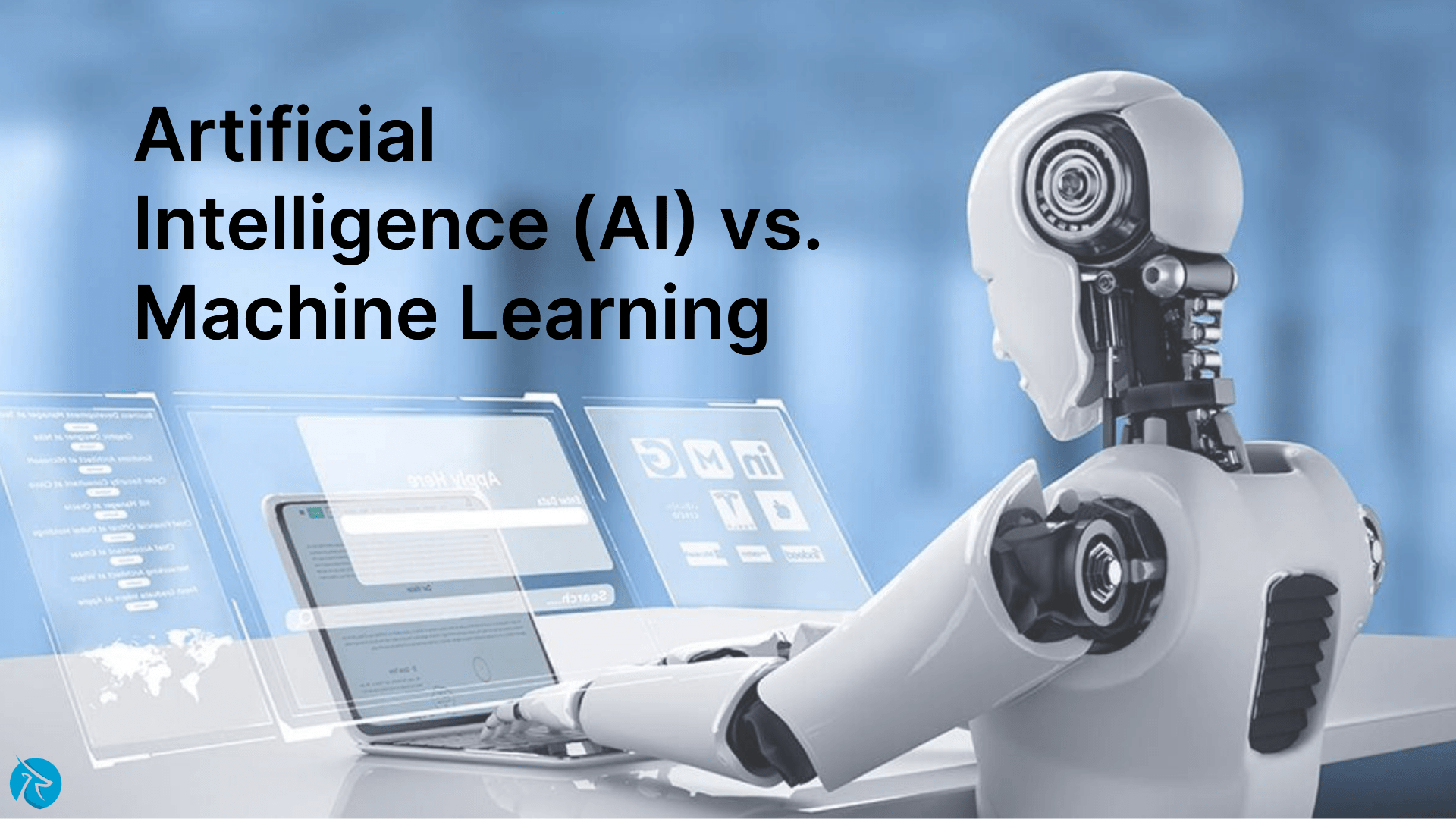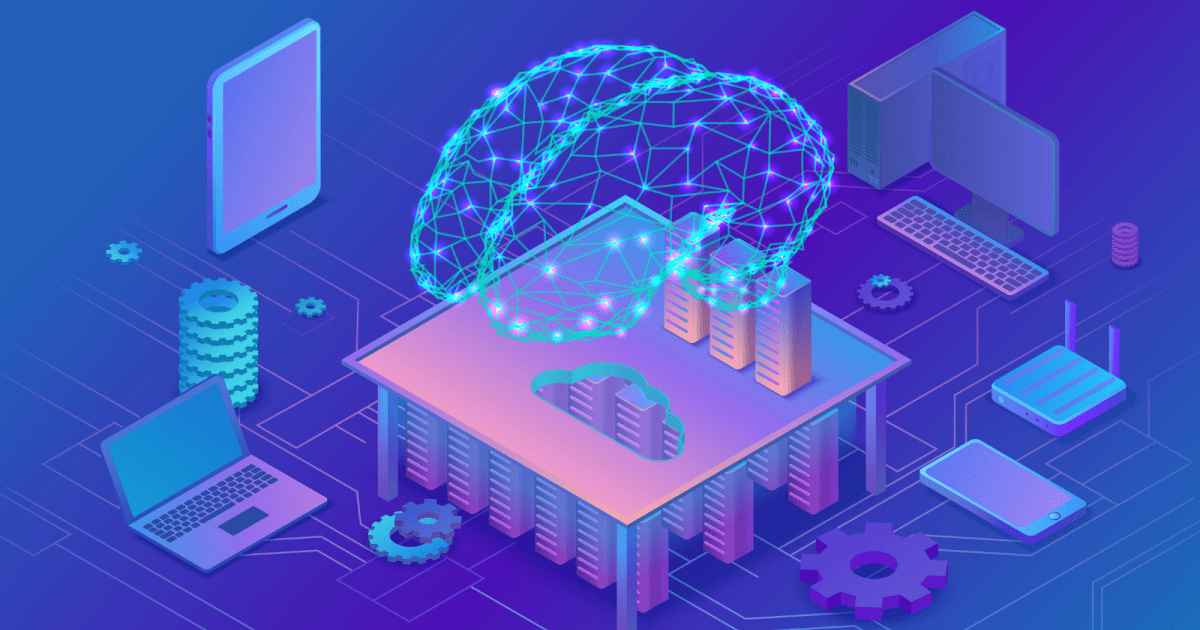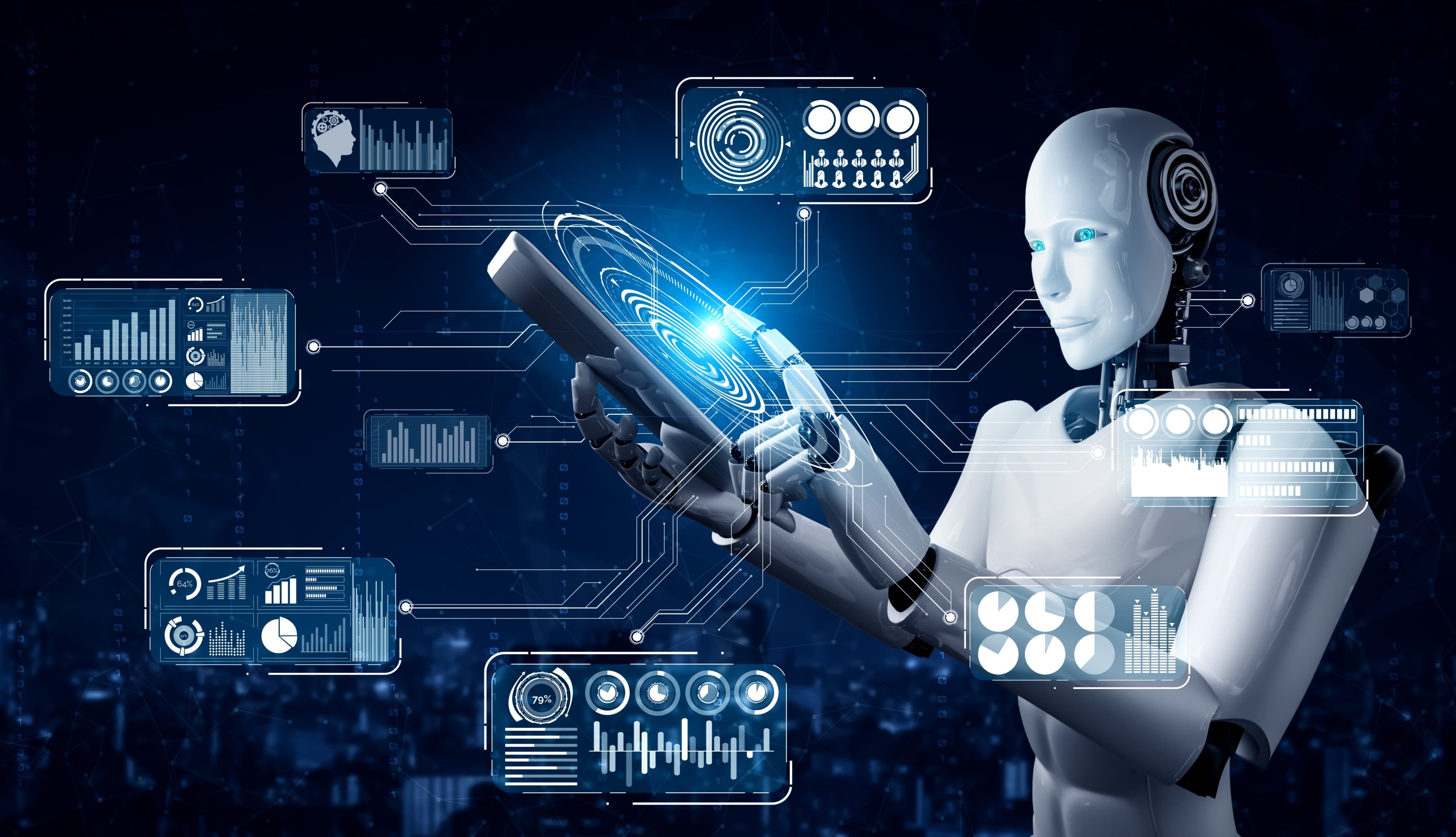Artificial Intelligence (AI) vs. Machine Learning: The Future of eCommerce

Artificial intelligence and machine learning have become buzzwords in the technology industry, with both terms often used interchangeably. However, while they share some similarities, there are important differences between the two that are worth exploring.
Overview definition
Artificial Intelligence (AI)
Artificial intelligence, or AI, refers to the broader concept of machines that are capable of performing tasks that typically require human intelligence. This includes tasks such as recognition, decision-making, and visual perception. At its core, AI is about creating machines that can think, reason, and learn like humans.
Machine Learning (ML)
Machine learning, on the other hand, is a subset of AI that focuses specifically on training machines to learn from data. This involves creating algorithms that can automatically improve as they are exposed to more data, without being explicitly programmed to do so. In other words, the machine "learns" from the given data, gradually improving its performance over time.
The relationship between AI and machine learning

One way to think about the relationship between AI and machine learning is that machine learning is a key component of many AI systems. Without machine learning algorithms, AI systems would need to be explicitly programmed for every possible outcome, making them impractical for complex tasks.
Another way to differentiate between the two is to consider the goals of each. The goal of AI is to create machines that can perform tasks that typically require human-level intelligence. Machine learning is a tool that helps us achieve that goal by allowing machines to learn from experience, just as humans do.
There are several key applications of AI and machine learning that are currently in use, and this is likely to become increasingly important in the future. These include:
- Natural language processing (NLP): NLP involves creating algorithms that can understand and interpret human language. This is a key component of many AI systems, including virtual assistants like Siri and Alexa.
- Image and speech recognition: Machine learning algorithms can be used to train machines to recognize different objects and sounds. This is useful for a variety of applications, from self-driving cars to security systems.
- Predictive analytics: Machine learning algorithms can be used to analyze data and make predictions about future trends. This is useful for businesses in a variety of industries, from finance to retail.
How AI and ML are revolutionizing the eCommerce industry?
Artificial intelligence (AI) and machine learning (ML) are having a profound impact on the eCommerce industry, transforming the way businesses interact with customers and operate their online stores. Here are some ways in which AI and ML are revolutionizing eCommerce:

Personalized product recommendations: AI algorithms can analyze customer data to provide personalized recommendations based on a user's past purchases and behavior. This improves the customer experience and can lead to increased sales and customer loyalty.
Chatbots and virtual assistants: eCommerce businesses are increasingly using chatbots and virtual assistants powered by AI to handle customer queries and provide support. This helps to improve response times and reduce operational costs.
Voice search: With the growth of voice search technology, eCommerce businesses are using AI-powered tools to make it easier for customers to find what they are looking for. This technology can help improve the customer experience and increase sales.
Fraud detection: AI algorithms can analyze transaction data to detect fraudulent activities in real time, helping to prevent losses and protect customer data.
Inventory management: AI and ML technologies are used to optimize inventory management systems, predicting demand and the risk of overstocking or out-of-stock situations.
Dynamic pricing: eCommerce businesses are using ML algorithms to analyze customer behavior and adjust pricing in real-time to maximize revenue. This helps businesses to stay competitive and profitable.
Customer sentiment analysis: AI algorithms can be used to analyze social media posts and customer feedback to gain insights into customer sentiment and identify areas for improvement.
Benefits of AI and machine learning in the PDF invoice process
The use of AI and machine learning technologies in the PDF invoice process can provide significant benefits for businesses, including:
Automated data extraction
By using machine learning algorithms to automatically extract data from PDF invoices, businesses can save significant amounts of time and reduce the risk of errors that can occur with manual data entry.
Improved accuracy
AI and machine learning algorithms can be trained accurately extract data from PDF invoices, even when the formatting is inconsistent or the data is located in different parts of the document. This reduces the risk of errors that can occur with manual data entry, improving the accuracy of invoicing data.

Faster processing
By automating the data extraction process, businesses can significantly reduce the time it takes to process invoices, freeing up staff to on other tasks and improving overall efficiency.
Better decision-making
By having accurate and timely invoicing data, businesses can make better-informed decisions about their finances, inventory management, and other key areas of operation.
Increased cost savings
By automating the PDF invoice process, businesses can reduce the need for manual labor, improving efficiency and reducing labor costs.
Businesses may ensure that sensitive financial data is kept secure and lower the risk of fraud and unauthorized access by optimizing the PDF invoicing process.
Conclusion
In conclusion, while artificial intelligence and machine learning are closely related, they are not synonymous. AI encompasses a broader set of technologies, while machine learning is a specific subset of AI that involves training machines to learn from data.
In eCommerce, AI, and ML are revolutionizing this industry, providing businesses with powerful tools to improve the customer experience, increase sales, and reduce costs. As these technologies continue to evolve, eCommerce businesses that keep pace with the latest developments will be best positioned to succeed in the digital marketplace.











